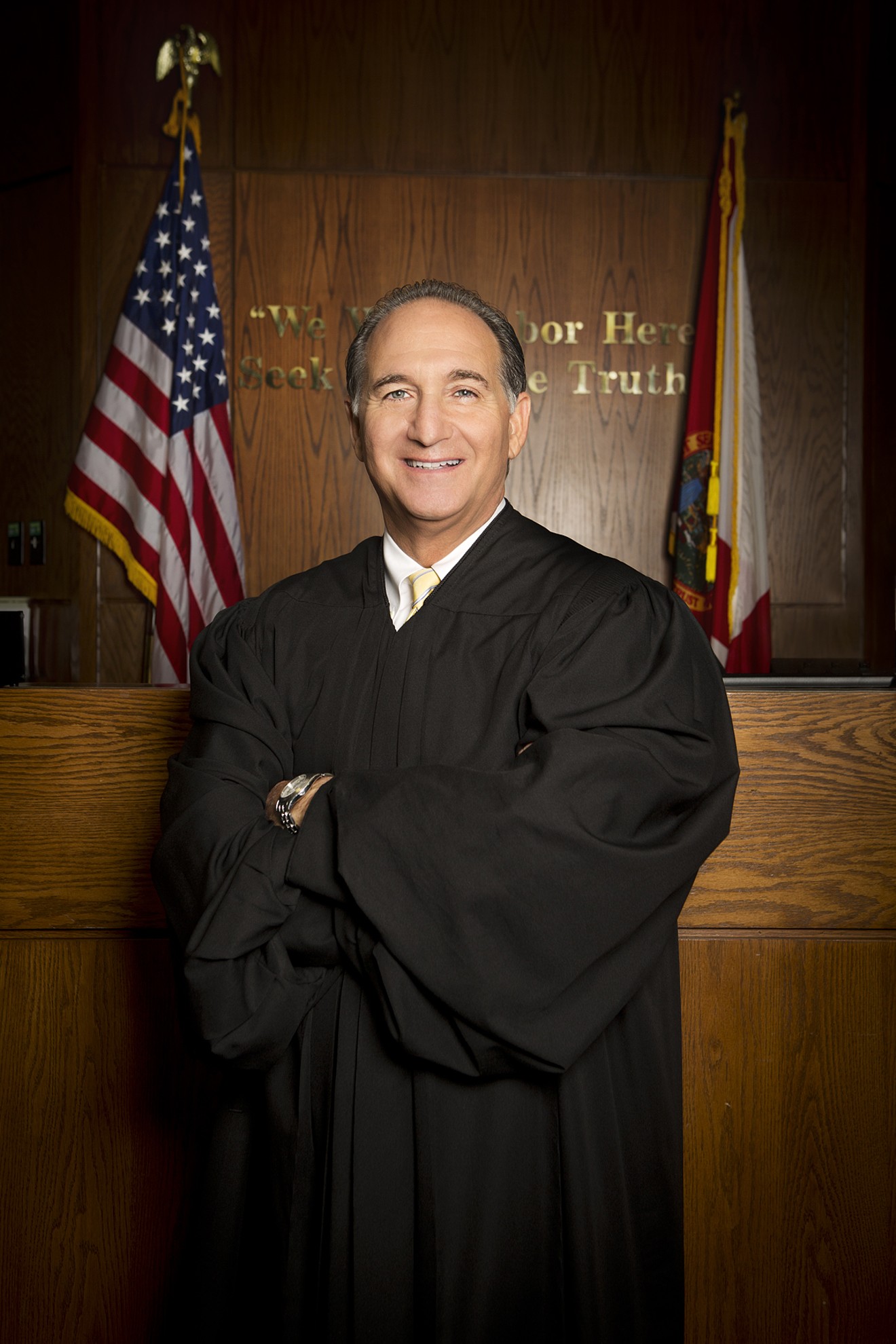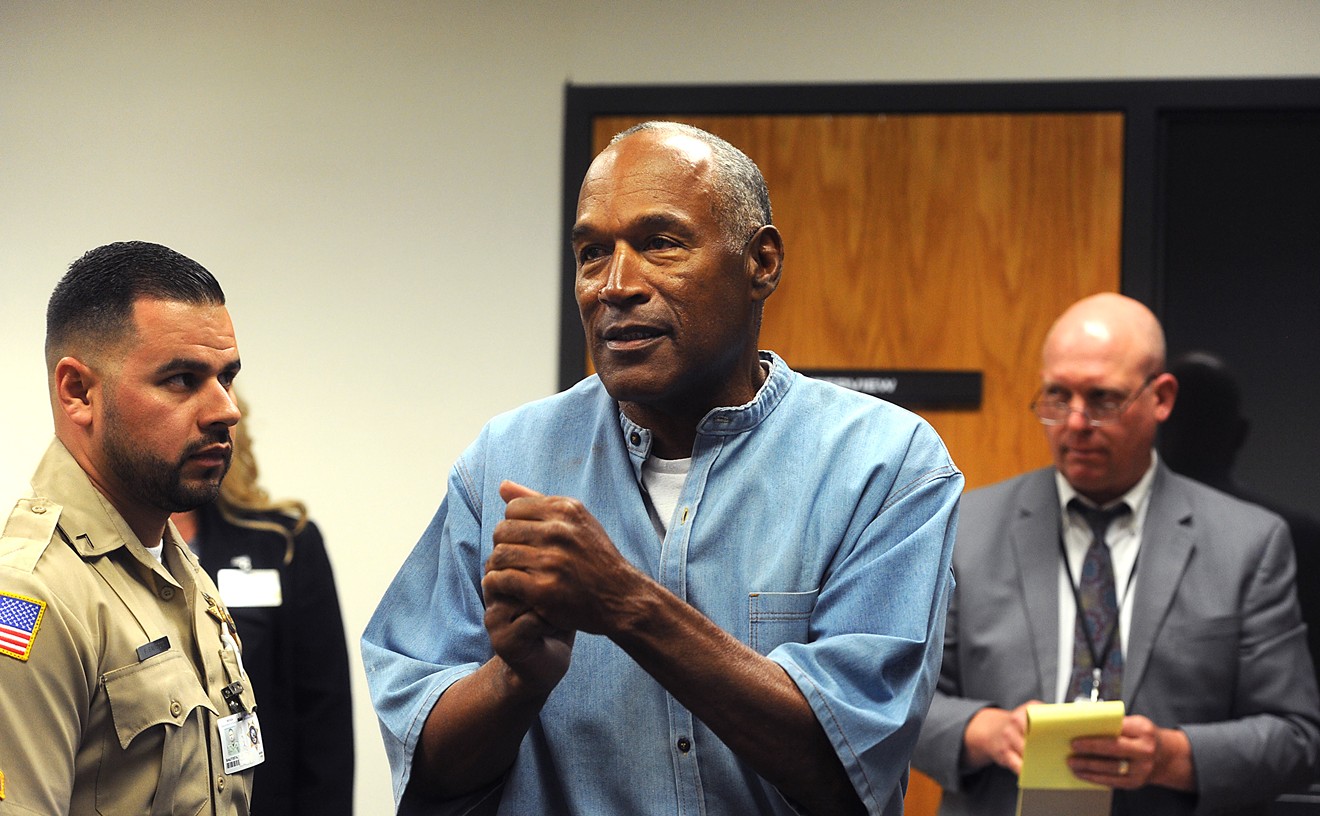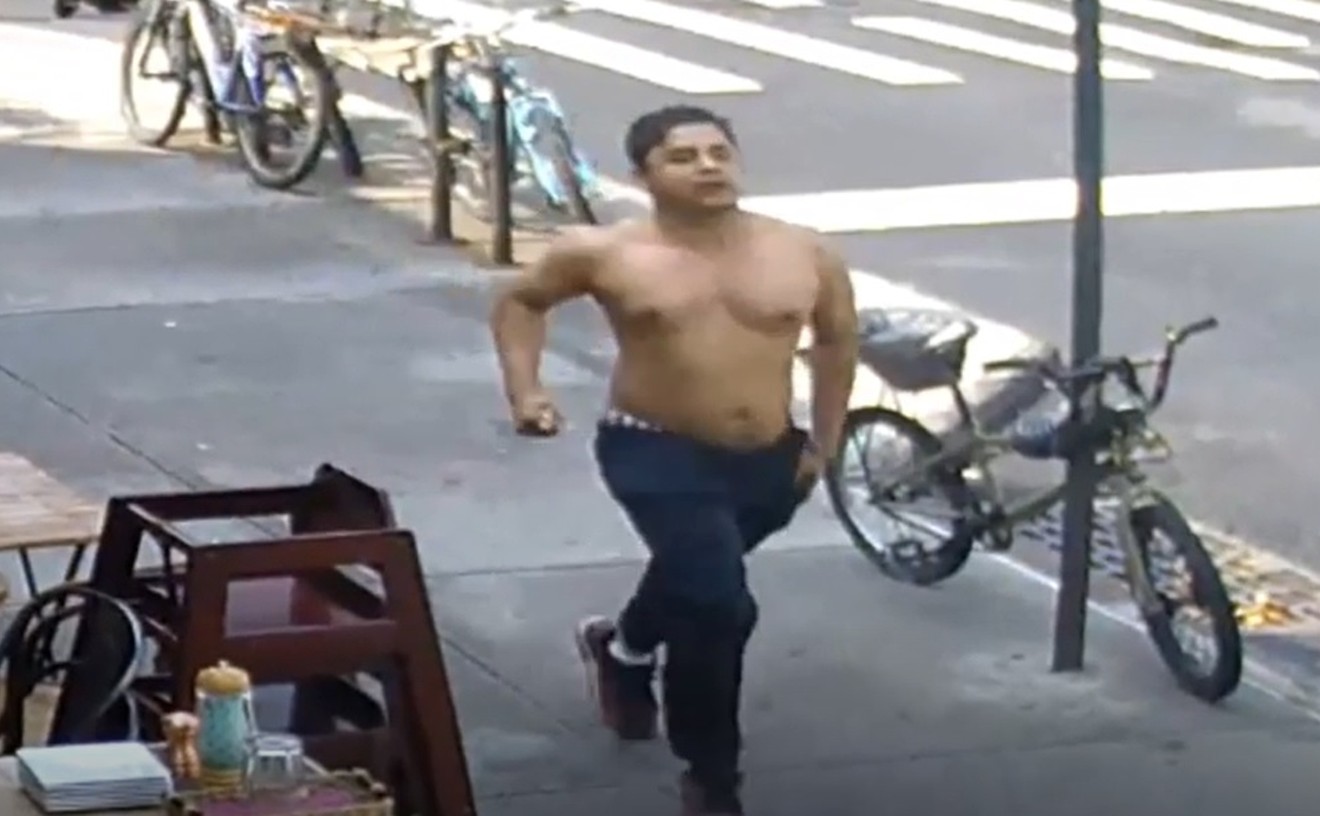It's easy to mistake Steve Leifman for a psychiatrist. He'll happily rattle off statistics about the incidence of schizophrenia in Miami-Dade County, quote a recent Journal of the American Medical Association article, or digress at length about the effects of childhood emotional trauma.
Leifman is actually a criminal court judge in Miami-Dade County's 11th Circuit, but he rarely talks about locking people up. Instead, he believes his job is diverting as many people as possible away from jail and into treatment.
"What we do now is the definition of insanity," he says one afternoon, noting that Miami contains America's highest population of mentally ill people and that the city's prison system is far and away its largest provider of mental-health care.
Roughly two decades ago, Leifman embarked on a quest to stop punishing the mentally ill for simply being sick. He helped create the Criminal Mental Health Project, which has diverted so many people from prison that Miami-Dade was able to close the entire Women's Detention Center in 2012. The groundbreaking program has evolved into an international model.
He has also developed "crisis-intervention training" for local cops that's helped lead to a drastic drop in police shootings of mentally ill people and led the push to close the notorious ninth-floor psychiatric ward at the Miami-Dade County Jail.
Now, after nearly a decade and a half running the county's mental-health diversion courts, Leifman is tackling his largest major project: a one-stop, monolithic facility that brings criminal justice, law enforcement, and medical treatment professionals into a single, state-of-the-art center specializing in rehabilitation rather than punishment. The goal is to make society safer by helping troubled people instead of incarcerating them for petty crimes like drinking in public.
"It's going to be a one-stop shop for Dade County's most acutely ill," he says. "They need to be in this wonderful, welcoming, structured environment where we can help them recover."
He describes one severely schizophrenic patient who'd been arrested for tiny crimes a staggering 2,200 times in just five years, costing taxpayers $13.7 million. Leifman says the criminal justice system still concentrates on treating the symptoms of the problem (the arrests) rather than treating that patient's schizophrenia.
The new center will be equipped with a crisis unit, short-term residential hospital beds, a primary health clinic to treat physical ailments such as cancer and heart disease, a dental clinic, an eye clinic, and even a tattoo-removal facility. He expects the center to open "within the next two years."
Leifman's quest began in the 1970s after he toured a decrepit psychiatric hospital where a patient had been chained to a bed. Now, the new facility will be a final, humane capstone in a career dedicated to making Miami-Dade a safer place.
"This closes the loop on what was missing," he says. "The problem was that there was no one institution that claimed it was responsible for it. We in the courts are able to play this wonderful role with our moral authority to look at things differently."












